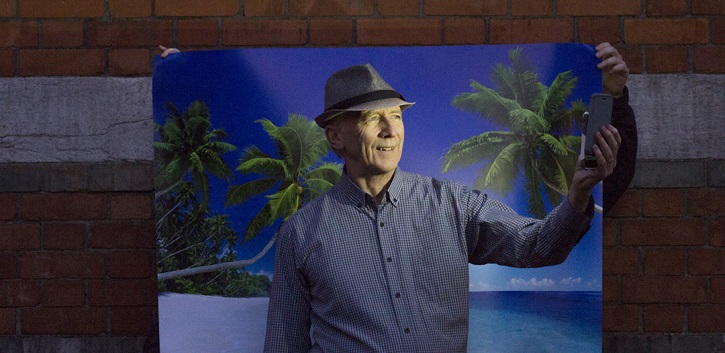UCC cuts the jargon in new Instagram campaign

University College Cork has launched a new Instagram campaign aimed at presenting complex ideas and research in a straightforward way to a general audience.
Developed by UCC’s Office of Media and PR, the campaign features attention-grabbing portraits of researchers taken by Cork-based photographer Clare Keogh, accompanied by accessible explanations of their work and ideas.
The campaign, which will be rolled out on the @universitycollegecork account throughout this week, is focused on encouraging great communication from researchers tackling the world’s grandest challenges.
"The EU now provides only 30% of the EU's plant protein needs."
— UCC Ireland (@UCC) August 14, 2018
Prof Elke Arendt, School of Food and Nutritional Sciences and @Pharmabiotic talks about her #research, which aims to develop healthy plant proteins for human consumption: https://t.co/VnHDtTQtJa#UCCOurCampus pic.twitter.com/O6cw9cLSDG
Dr Orla Lynch, Head of Criminology, talks about her recent research into how people become involved in political violence, but also how and why they disengage from violent organisations.
“This work involved conducting interviews with over 100 members of terrorist organisations with the aim of trying to understand their journey into and out of violence. Other research I recently carried out concerned the victims of terrorism and attempted to understand how victimhood is understood and experienced in the case of political violence but also sought to pick apart the complex relationship between victimhood and involvement in retaliatory violence.”
Her most recent work examined the issues surrounding European children who were brought to and grew up in ISIS-held territory in Syria and Iraq and the implications of their experiences for reintegration back into their home country.
Professor Elke Arendt, School of Food and Nutritional Sciences and APC Microbiome Institute, UCC, refers to the specific challenge of meeting the growing demand across the globe for high quality, protein-rich food that satisfies the need of a growing world population while taking care of environmental sustainability, sustainable land-use practices and food security.
“Europe currently has a massive consumption of animal-based proteins for food, and most plant proteins on the European market are used for that purpose. The EU now provides only 30% of the EU's plant protein needs, and the homegrown part of plant proteins is decreasing. The imported 70%, mainly soybeans, comes mostly from Brazil, creating substantial environmental problems as the production results in the cutting down of trees in the Amazon rainforests. The deficiency in protein sources also creates price volatility and trade distortions.”
Professor John Sodeau, Director of the Centre of Research into Atmospheric Chemistry (CRACLab) at UCC, pictured hugging trees, comments in his post about how “Cobh’s Air Quality is in the news at the moment because of the 94 cruise ships coming to call this year, the proposed incinerator and the Haulbowline Island clean-up.”
“So, the CRACLab did an Air Pollution walk there in June, just like the PANA car ban 96FM walk we did in April. The results were interesting especially when a big ship is in town. The plume values would not be out of place in the world’s most polluted cities (from WHO data)!"
In his photograph, Dr Fiachra Long, Head of the School of Education, is posed taking a selfie on his smartphone in Cork City in front of a backdrop, which gives the impression he is in the Caribbean. He comments: “Nanotechnology now allows people to see themselves as minds floating above their bodily conditions. Instead of living in a dull world, they can live in an exciting world of action, convenience or leisure simply by wearing a casket on their heads. Casket indeed! A smartphone will do.”
Arno Fricke, a PhD student in the School of Microbiology and Environmental Research Institute (ERI), UCC, discusses the Newtrients project at UCC, which is advancing the technology of using bacteria to produce bioplastic from dairy processing wastewater.
This technology could help to use waste materials instead of fossil fuels for plastic production, and provide a degradable bioplastic, which can be composted to fertilise the next generation of the material.
For more on this story contact:
Lynne Nolan, Media & PR Officer, UCC: 087 210 1119 or lynne.nolan@ucc.ie.
